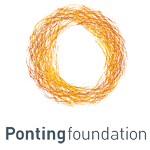
The ultimate goal of the Tailored Therapy Program, carried out by the Children’s Cancer Institute of Australia in 2013, was to be able to define a personalized treatment strategy for each child diagnosed with a high-risk malignancy, which incorporates those drugs that have the greatest likelihood of successfully treating that child’s cancer.
For many children diagnosed with high-risk malignancies, including the most aggressive forms of neuroblastoma, brain tumours and leukaemias amongst others, there is a very significant likelihood that they will fail current therapeutic treatment protocols, and will relapse and die of their disease.
These are the nearly 30% of children who are still dying of cancer today, and to provide new hope for these children, and to significantly increase the overall survival rates for childhood cancer, new approaches to treatment are urgently needed.
It is clear that the “one size fits all” approach to treating children with cancer does not work for those unfortunate enough to be diagnosed with the most aggressive malignancies, and that rather than treating them with standard chemotherapeutic protocols utilized in the clinic today, a more personalized approach to treatment is needed, where the treatment strategy is tailored to the individual characteristics and biology of the patient’s tumour.
The Ponting Foundation committed $115,000 to support this project.

